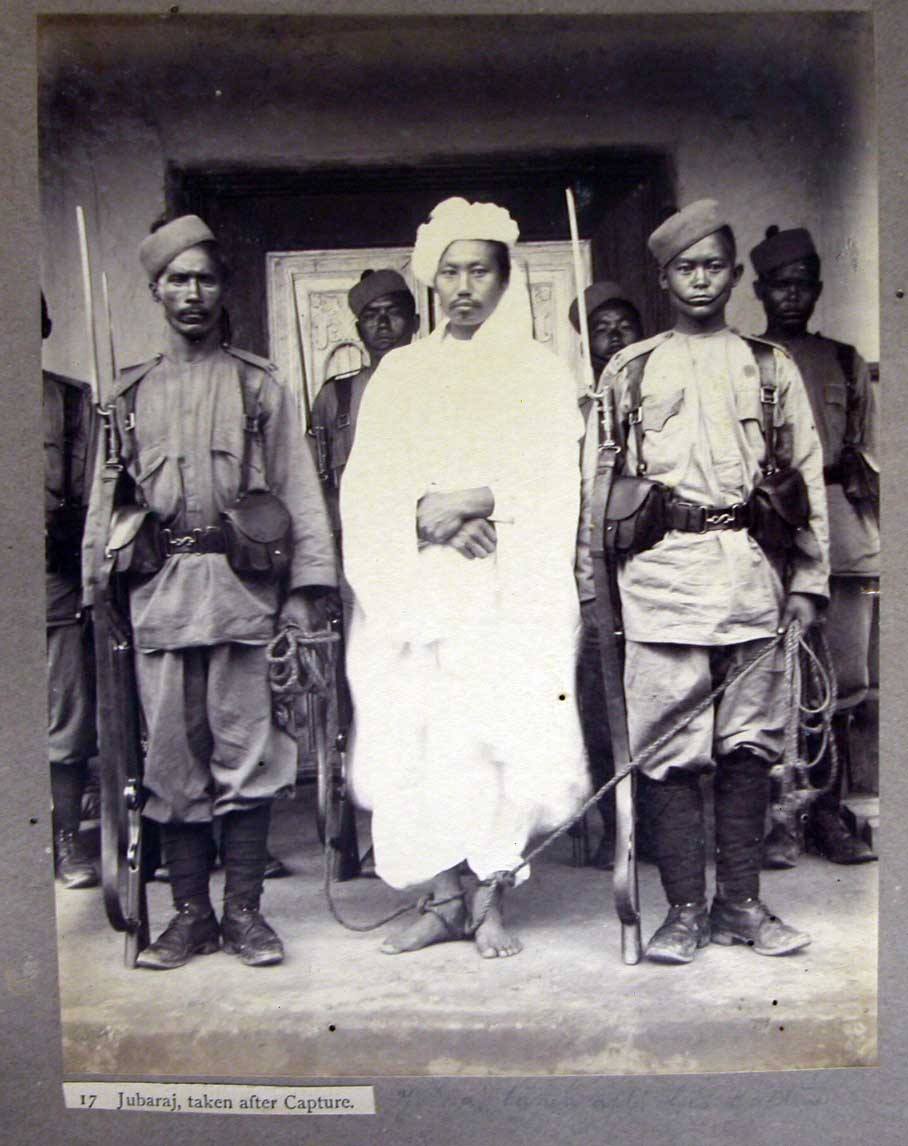
1890 - 1891
Manipur under British rule
room India
Manipur (known as Kathe or Cassay in Burmese) was an independent kingdom with a royal family that came to power in the 1690s. The Manipuri or Meithei language is a Tibeto-Burman language related most likely related to Kuki-Chin and Naga.
In 1725, and again in 1749, the Manipuris under their Hindu king Garib Newaz overran much of today's Sagaing Region, contributing to the fall of the Toungoo dynasty in 1752. In 1819, the Burmese king Bagyidaw conquered Manipur, leading to what the Manipuris call the "seven years of devastation" (chahi taret khuntakpa in Manipuri).
After Bagyidaw's conquest, thousands of Manipuri captives were then settled in the Ava-Amarapura area, where their descendants remain to this day. They became integrated into the Burmese power structure as hundreds formed the elite Cassay Horse regiment in the Konbaung army and Manipur brahmins (ponna) promoted Hindu rituals and ideas of kingship at the royal court.
Under the Treaty of Yandabo, which ended the First Anglo-Burmese War in 1826, the Burmese agreed to "renounce all claims" and end all "future interference" in Manipur. From 1826 the British saw Manipur as a protectorate and over the next 70 years, the British sway over Manipur gradually increased. A new king, Gambir Singh, was placed on the throne and a British Political Agent was installed at the capital Imphal.
In 1891, the British intervened in the royal succession and the Manipuris resisted. The leader of the resistance was the king's brother, Prince Tikendrajit Singh who was then Senapati (Thenapati in Burmese) or army chief.
The British Chief Commissioner James Wallace Quinton was dispatched from Assam. On 22 March 1891, the Manipuris speared to death the Political Agent Frank St Clair Grimwood and then beheaded and dismembered Mr Quinton and three other British officers.
The British responded in force from Silchar, Kohima, and Tamu (in Burma). This was the Anglo-Manipuri War of 1891. It was the single greatest revolt against British rule in India since the 1857 Mutiny. Within a month, the war ended with British victory. The Maharaja Kulachandra Singh was transported for life to the Andaman Islands where he died a prisoner in 1934. Prince Tikendrajit and others were publicly hanged at Imphal . A new king, the five-year-old Churachandra Singh, was placed on the throne. And Manipur was forced to remain a Princely State within the British Indian Empire.
This photograph of Tikendrajit Singh taken after his capture by the British in 1891 identifies him as "Jubaraj" (Yuwaraza in Burmese), or prince.